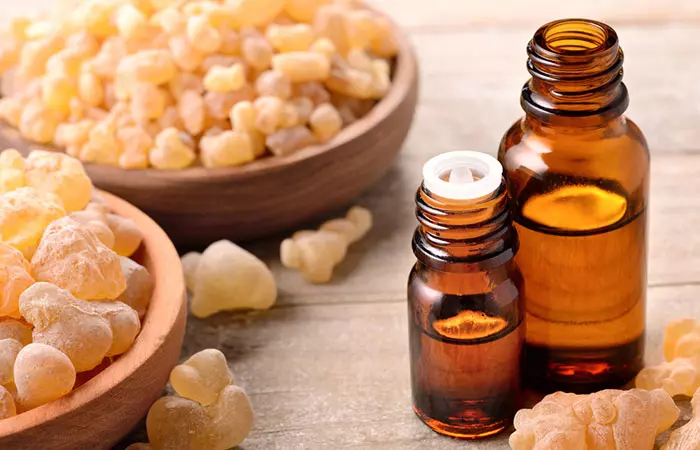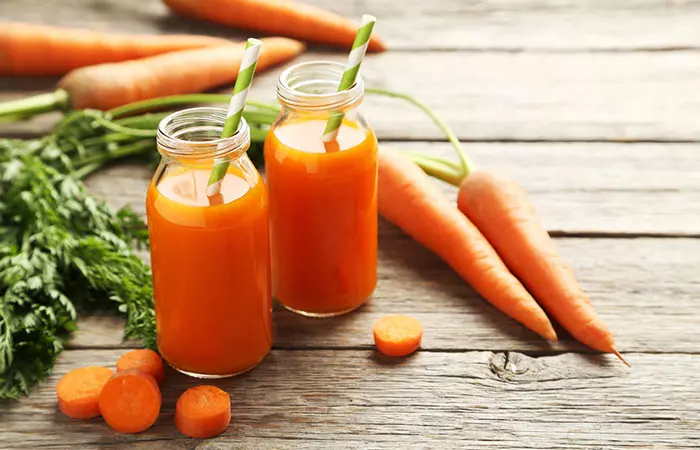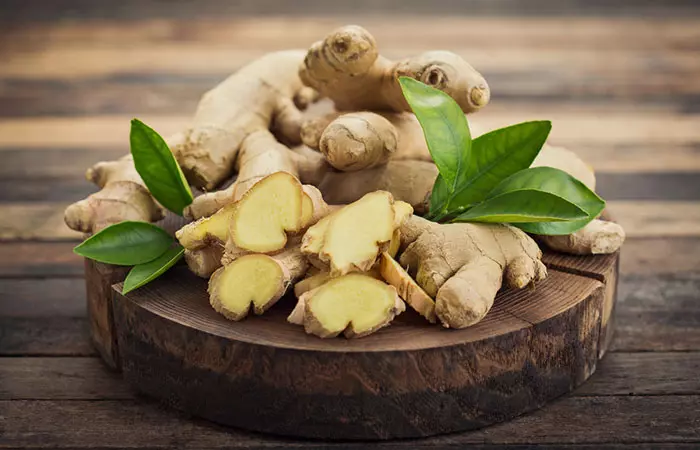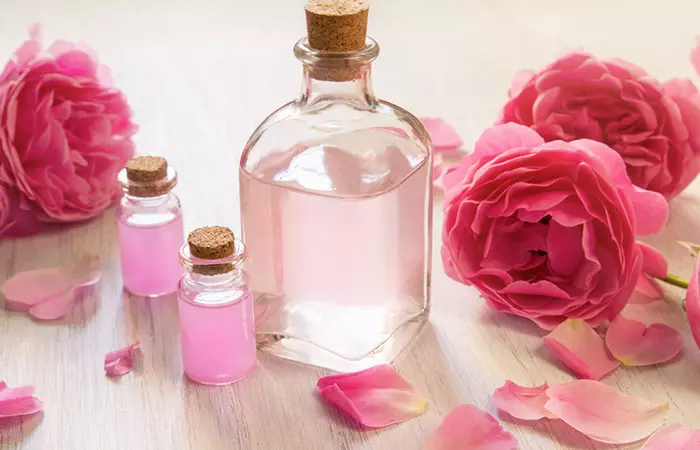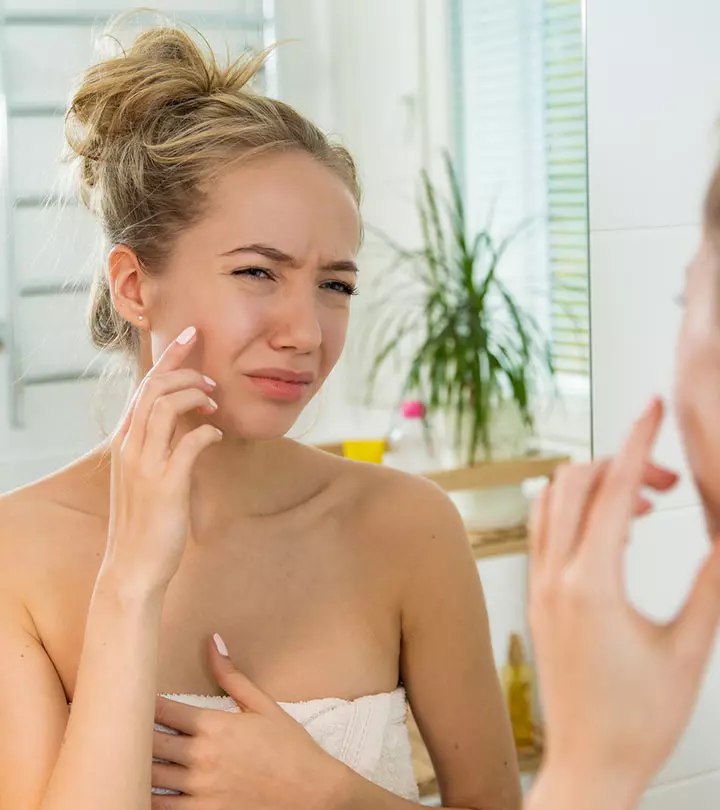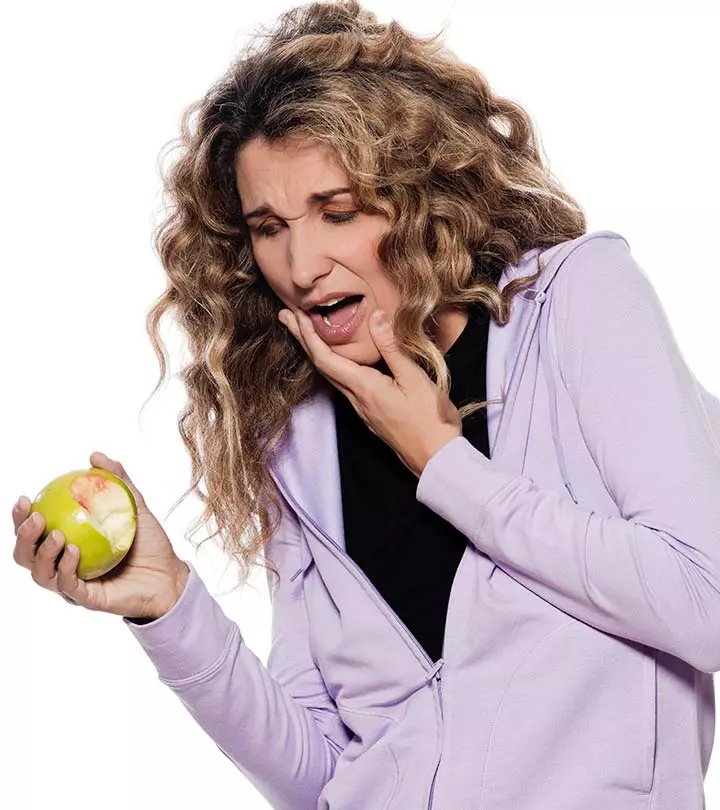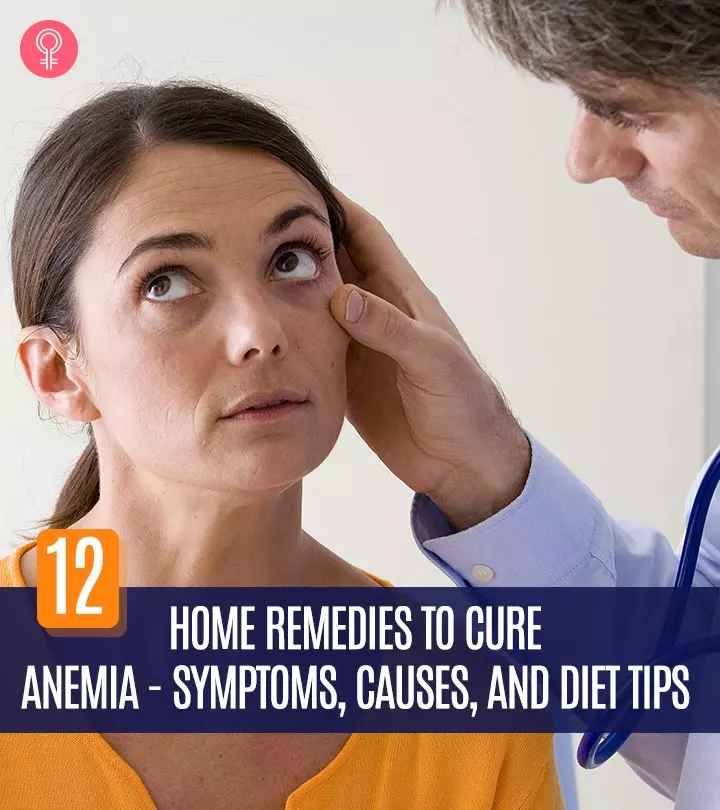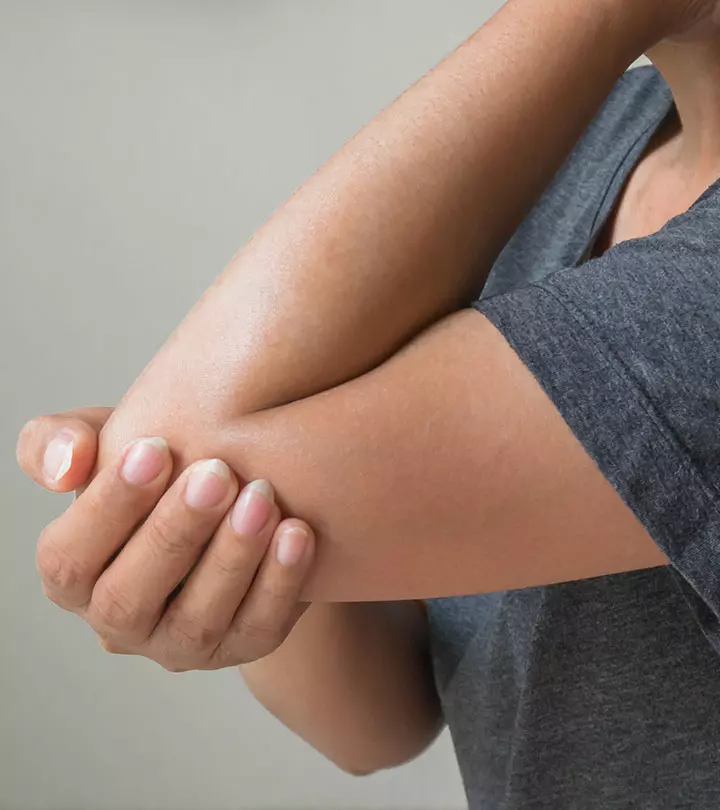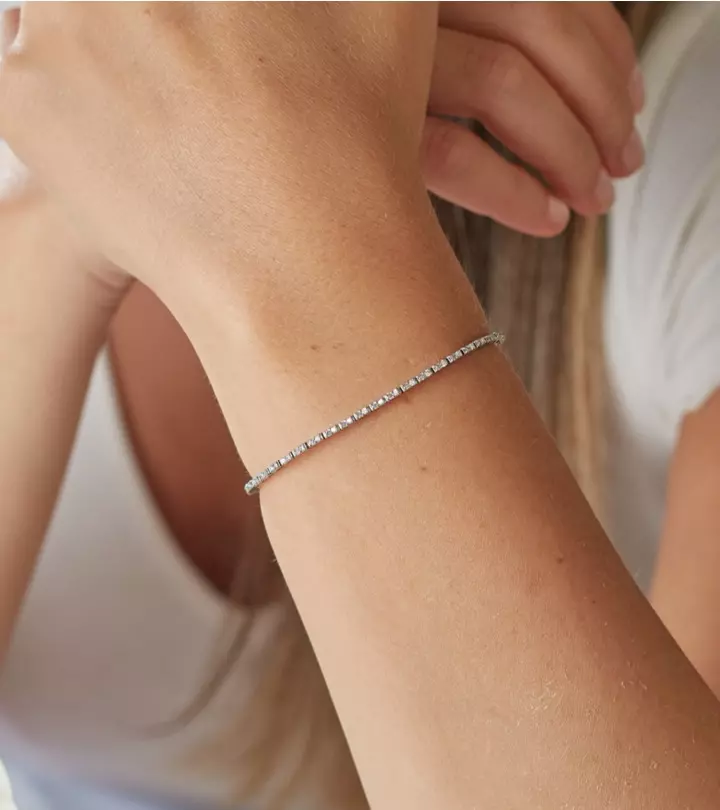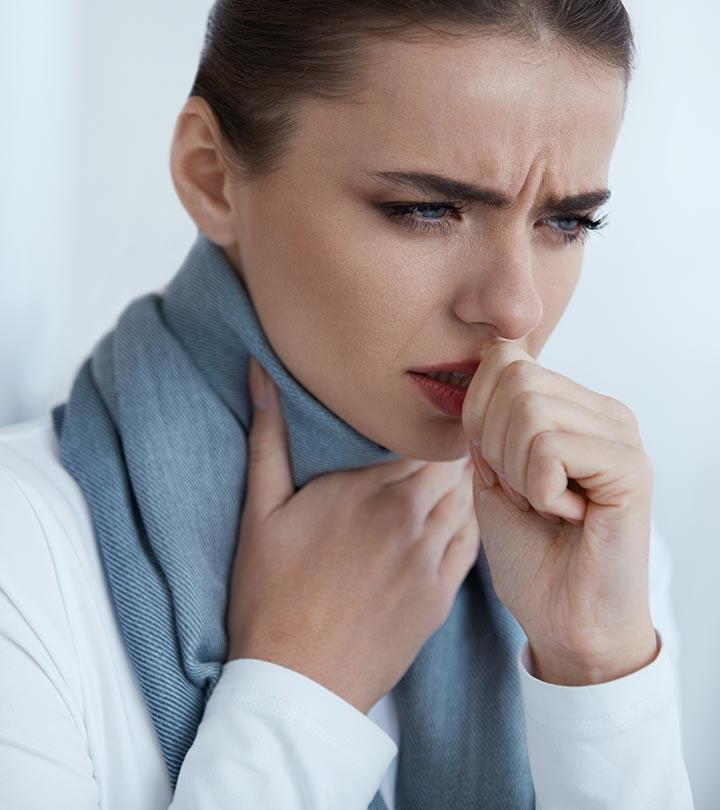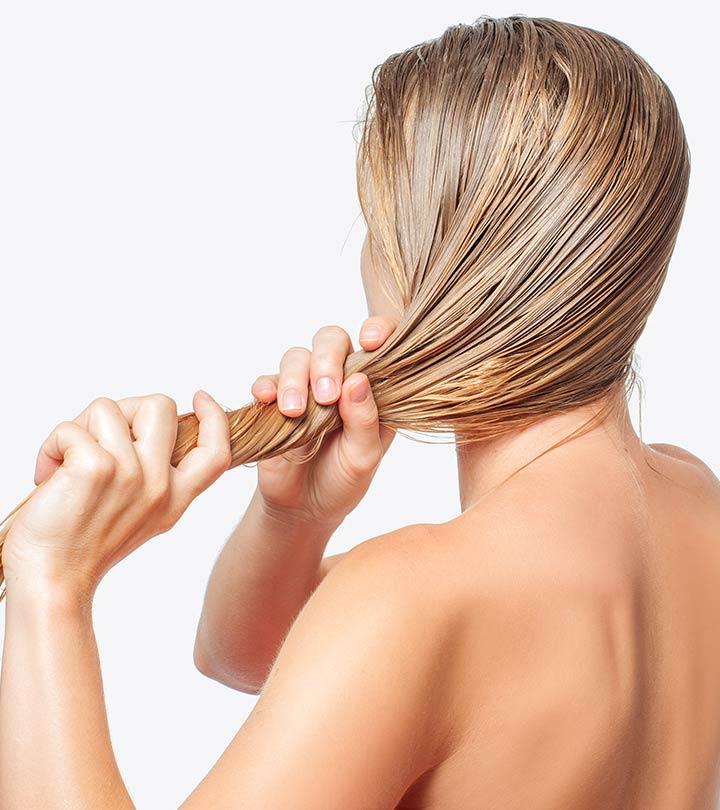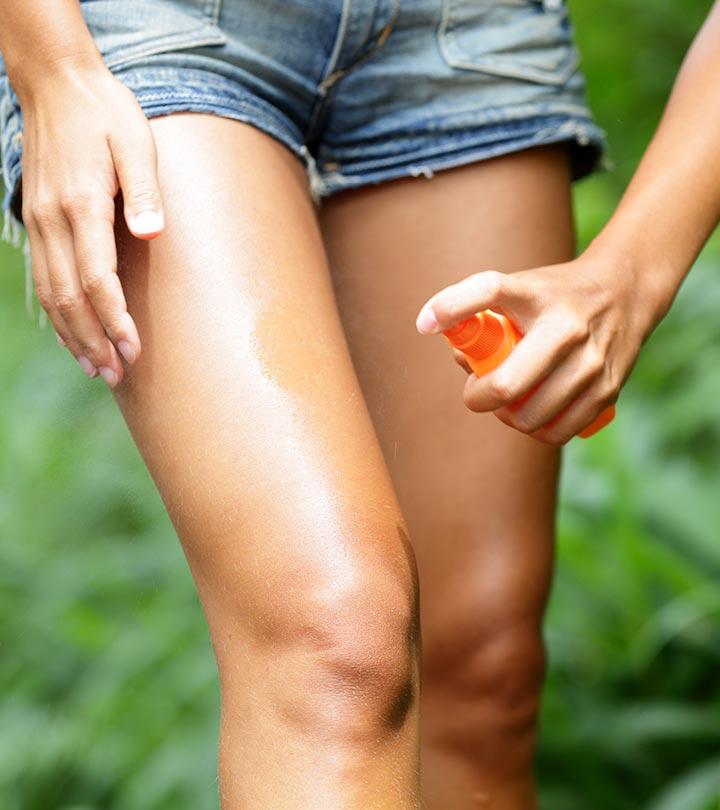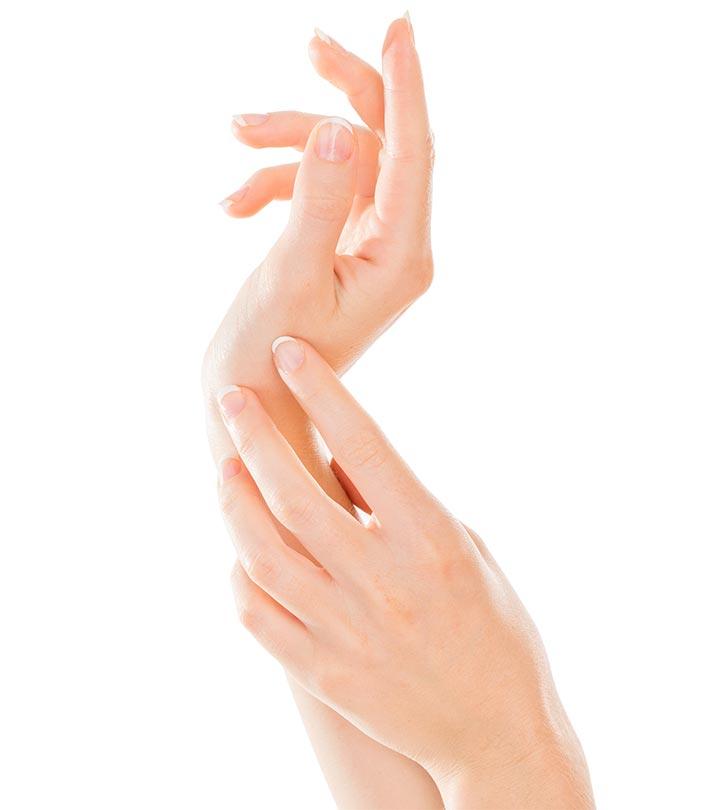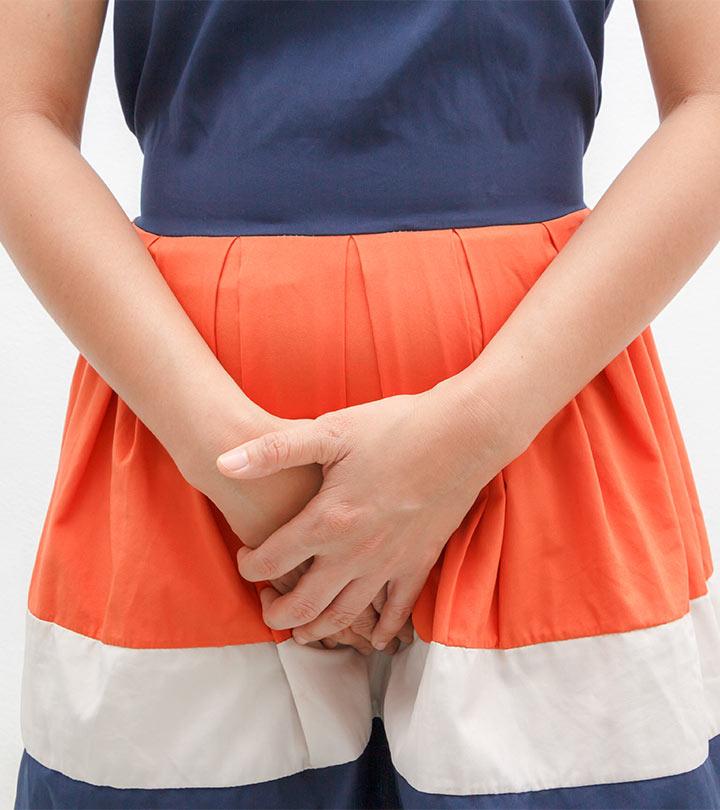Natural Remedies For Eye Floaters + Causes & Prevention Tips
Safe and natural ways to prevent eye floaters from posing a hurdle to your vision.

Image: Shutterstock
You may be surprised to know this, but there are home and herbal remedies for floaters. Yes, those floating particles that spiral and run around in your range of vision have a name for themselves and some remedies if you want to get rid of them.
Eye floaters are tiny patches of vitreous (a jelly-like substance in the eyes) that drift about when a person moves their eyes. Floaters in the eyes can appear as black or gray specks or even look like cobwebs. Although growing age is a common cause of eye floaters, they can also be caused by a range of other illnesses. If you’re wondering how to reduce floaters in eyes naturally, Continue reading to find out more about eye floaters and how to get rid of them naturally.
In This Article
Home Remedies To Treat Eye Floaters
1. Beetroot Juice
Beetroots are rich in active compounds called carotenoids (1). Carotenoids like lutein and zeaxanthin are necessary components for macular and retinal health (2). Hence, beetroot may help in treating eye disease like eye floaters.
You Will Need
Fresh beetroot juice
What You Have To Do
Drink a glass of fresh beetroot juice.
How Often You Should Do This
Do this 2 times a day.
2. Vitamins
Vitamins play an important role in maintaining a healthy vision. Vitamin A improves eyesight (3). Vitamin C supports the formation of collagen and is necessary for stronger retinal capillaries and eye tissues (4). Hence, vitamin A and vitamin C may help in treating eye floaters.
You Will Need
Foods rich in vitamins A and C (carrots, spinach, kale, citrus fruits, eggs, and butter)
What You Have To Do
Consume these foods.
How Often You Should Do This
Do this regularly.
3. Castor Oil
Castor oil contains ricinoleic acid that alleviates inflammation (5). Hence, castor oil may help in improving the symptoms of eye floaters by reducing inflammation. Ensure the oil you are using is of high quality and free of impurities, as low-grade oil applied to the eyes may lead to irritation.
You Will Need
Organic castor oil
What You Have To Do
- Pour a drop or two of 100% organic castor oil into each eye.
- Leave it on overnight and wash your eyes the next morning.
How Often You Should Do This
Do this once a day, preferably before bedtime.
4. Frankincense Essential Oil
Frankincense oil possesses anti-inflammatory and antiseptic properties (6). Hence, it may help in reversing retinal cell degradation and damage. This may help in treating eye floaters.
You Will Need
Frankincense oil
What You Have To Do
- Spread a drop of frankincense essential oil between your fingers.
- Apply this above your eyebrows and across the top of your cheekbones.
How Often You Should Do This
Do this 1-2 times a day.
5. Green Tea
Green tea is abundant in antioxidants and may help in improving vision by strengthening the retinal tissues (7), while providing hydration.
You Will Need
- 1 teaspoon of green tea
- 1 cup of water
- Honey
What You Have To Do
- Add a teaspoon of green tea to a cup of water.
- Bring it to a boil in a saucepan and simmer for 5 minutes.
- Strain and let the tea cool a bit.
- Add some honey to the green tea and consume immediately.
How Often You Should Do This
Do this 3 times a day.
6. Omega-3 Supplements
Omega-3s are polyunsaturated fatty acids that possess anti-inflammatory properties (8). They reduce inflammation in eyes to a great extent (9). Hence, omega-3s may be one of the best remedies to treat eye floaters.
You Will Need
1000 mg omega-3 supplements
What You Have To Do
Consume 1000 mg omega-3 supplements after consulting your doctor.
How Often You Should Do This
Do this once a day.
7. Lemon Juice
Lemons are rich in vitamin C and antioxidants (10). These work great in repairing degenerative macular and retinal tissues. Lemon juice may help in treating eye floaters.
You Will Need
- 1/2 lemon
- 1 glass of water
- Honey
What You Have To Do
- Squeeze the extract from half a lemon into a glass of water.
- Add some honey to it.
- Consume it immediately.
How Often You Should Do This
Do this 3-4 times a day.
8. Apple Cider Vinegar
Apple cider vinegar exhibits anti-inflammatory and antioxidant properties (11). It may reduce inflammation in the retinal tissues and protect the eyes from oxidative stressi An imbalance between the creation and detoxification of free oxygen molecules with uneven electrons that damages retinal cells. . Hence, apple cider vinegar may be a good option for treating eye floaters.
You Will Need
- 1 teaspoon of apple cider vinegar
- 1/2 cup of warm water
- Cotton pads
What You Have To Do
- Add a teaspoon of apple cider vinegar to half a cup of water and mix well.
- Soak two cotton pads in this solution and place them on closed eyelids.
- Leave them on for 30 to 60 minutes.
How Often You Should Do This
Do this 1-2 times a day.
9. Coconut Oil
Coconut oil contains medium-chain fatty acids. These fatty acids help in reducing inflammation and oxidative stress caused by free radicals (12). Hence, it may aid in repairing retinal and macular tissues and reduce eye floaters.
You Will Need
Coconut oil
What You Have To Do
- Rub a teaspoon of coconut oil between your palms.
- Close your eyelids and place your palms over them.
- Hold your hands over your eyes for 5 to 10 minutes.
How Often You Should Do This
Do this 1-2 times a day.
10. Carrot Juice
Carrots are rich in antioxidants and vitamin A (13). Hence, regular intake of carrots may provide the required nutrient to the eyes. This may help get rid of various eye conditions like eye floaters.
You Will Need
Freshly extracted carrot juice
What You Have To Do
Consume a cup of fresh carrot juice.
How Often You Should Do This
Do this once a day.
11. Flaxseed Oil
Flax seeds are rich in omega-3 fatty acids (14). Omega-3 fatty acids are great for promoting eye health. Hence, flaxseed oil may help in treating eye floaters.
You Will Need
Flaxseed oil
What You Have To Do
- Rub a teaspoon of flaxseed oil between your hands.
- Place them over your closed eyelids for 5 minutes.
- Alternatively, you can apply the flaxseed oil above your eyebrows and cheekbones and leave it on overnight.
How Often You Should Do This
Do this 1-2 times a day.
12. Goji Berries
Goji berries contain zeaxanthin (15). It is an antioxidant that is necessary for the proper functioning of the eyes. Hence, regular consumption of goji berries may help in treating the condition.
You Will Need
1/4 cup of dried goji berries
What You Have To Do
Consume one-fourth cup of dried goji berries.
How Often You Should Do This
Do this once a day.
13. Grape Seed Extract
Grape seeds contain oligomeric proanthocyanidin complexes (OPCs) (16). These OPCs exhibit powerful antioxidant properties. Hence, grape seeds may aid in treating eye floaters.
You Will Need
Grape seed supplements
What You Have To Do
Consume 100 mg of grape seed supplements after consulting your doctor.
How Often You Should Do This
Do this 2 to 3 times a day or as specified by your doctor.
14. Garlic
Garlic possesses strong anti-inflammatory and antioxidant properties (17). These therapeutic properties of garlic may help in repairing the damaged eye tissues that may lead to eye floaters.
You Will Need
Minced garlic cloves
What You Have To Do
- Add minced garlic cloves to your favorite salad or pasta and consume daily.
- Alternatively, you can also directly chew on the garlic cloves if you can withstand the strong flavor.
How Often You Should Do This
Do this daily.
15. Ginger
Gingerol is an important component of ginger. This compound exhibits excellent anti-inflammatory and antioxidant properties (18). These help in reducing damage due to oxidative stress and combats inflammation in the eyes.
You Will Need
- 1-2 inches of grated ginger
- 1 cup of water
- Honey
What You Have To Do
- Add an inch or two of grated ginger to a cup of water. Add grated ginger to water and boil for 5 minutes.
- Strain and let the tea cool a bit.
- Add some honey and consume immediately.
How Often You Should Do This
Do this 3-4 times a day.
16. Ghee
Ghee is an age-old Ayurvedic remedy to restore the health of the eyes. This treatment is referred to as netra basti and is believed to be great for eye floater treatment. However, there is no scientific research to back this claim.
You Will Need
1/4 cup of ghee
What You Have To Do
- Warm one-fourth cup of ghee and allow it to cool.
- Wash each of your eyes with the ghee for at least 5 minutes.
Note: This procedure can be a little messy and is best done in the bathroom.
How Often You Should Do This
Do this once every alternate night.
17. Amla Juice
Amla exhibits antioxidant properties (19). This is due to the vitamin C present in it. These properties may help in repairing the damages to eye tissues.
You Will Need
- Amla juice
- 1 cup of water
- Honey
What You Have To Do
- Mix freshly extracted amla juice in a cup of water.
- Add a little honey to this and consume it directly.
How Often You Should Do This
Do this once a day.
18. Aloe Vera Juice
Aloe vera exhibits rich antioxidant properties (20). These antioxidant properties may repair damaged tissues in the eye (21). They may also aid in the recovery of eye floaters.
You Will Need
1 cup of aloe vera juice
What You Have To Do
- Drink a cup of aloe vera juice.
- Alternately, you can also dab some aloe vera gel on your eyes every once in a while.
How Often You Should Do This
Do this once a day.
19. Onion
Onion contains quercetin, which is a powerful antioxidant (22). Quercetin is helpful in treating various eye diseases (23). Hence, onions may help in treating eye floaters.
You Will Need
Onion
What You Have To Do
Consume the sliced pieces of onion regularly.
How Often You Should Do This
Do this 2 times a day.
20. Rose Water
Rose water possesses powerful anti-inflammatory and antioxidant properties (24). These properties may help in healing damaged eye tissues and inflammation within the eye cells that causes eye floaters.
You Will Need
Rose water
What You Have To Do
- Pour a drop or two of rose water in each of your eyes.
- Blink a few times and allow it to be absorbed by your eyes.
How Often You Should Do This
Do this 3-4 times a day.
While natural remedies may help in combating eye floaters, they may not help in preventing their recurrence. The following are some tips to follow to prevent the recurrence of eye floaters.
Prevention Tips
- Use sunglasses to protect the eyes from the harmful rays of the sun.
- Avoid straining the eyes.
- Follow a healthy diet.
- Do eye exercises.
- Practice yoga.
- Drink lots of water.
Although eye floaters are often a result of advancing age, a few other factors may cause them. They are listed below.
What Causes Eye Floaters?
- Age-related changes in your eyes
- Inflamed eyes
- Bleeding from the eyes
- Torn retina
- Certain eye medications and/or surgery
- Medical conditions like diabetes, hypertensioni High blood pressure; blood pressure over 140/90 indicates the blood exerting too much force on the artery walls. , and injuries
- Nearsightedness
 Did You Know?
Did You Know?Signs And Symptoms Of Eye Floaters
- Small dark specks or strings floating in the field of vision
- Spots in the field of vision that are visible when looking at plain and bright backgrounds.
These are some signs and symptoms of eye floaters. But are these tiny spots harmful? Scroll down to learn more in detail.
Are Eye Floaters Dangerous?
As mentioned before, eye floaters are tiny spots, like dots, in a person’s vision that seem to float within the vitreous humor (the gel-like substance that fills out most of the eye). Even though they are annoying and very common, these small specks are usually harmless. But they may interfere with your vision when you are trying to look at a plain background. Most people ignore these spots over time, and they usually do not require any treatment. However, if you experience a sudden increase in eye floaters that are accompanied by flashes of light, it is essential to seek medical attention as it may be a sign of a retinal tear.
Eye floaters are classified into different types, depending on their shape. There are mainly five types of eye floaters and are discussed below.
Types Of Eye Floaters
(i) Fibrous Strands: Fibrous strands in the field of vision are the most common (and harmless) type of eye floaters. Fibrous shapes are a result of collagen breakdown.
(ii) Cloud-Like Floaters: Cloud-like floaters are diffused and less defined than the fibrous strands. The natural aging process leads to the visibility of such floaters.
(iii) Weiss Rings: Weiss rings are larger floaters that are ring-shaped. They are often formed when the vitreous tissue surrounding the optic nerve detaches itself.
(iv) Flashes Of Light: These are not exactly eye floaters. However, one can see flashes of light when the vitreous membranei The collagen layer separating the area around the lens from the remaining posterior of the eye. stimulates the retina during its detachment.
(v) Dots: Dots or specks appear in the line of vision when there’s a tear in the retina. The tear may have caused blood to leak into the vitreous membrane, causing the visible dots.
Maintaining a healthy diet is important to enhance the health of the eyes. Given below is a list of foods that are best for accelerating recovery and preventing eye floaters.
Best Foods For Eye Floaters
- Green leafy vegetables, like spinach and kale.
- Fish, like salmon, tuna, and sardines.
- Nuts rich in protein, like walnuts, pistachios, and almonds.
- Citrus and other fruits, like oranges, kiwis, strawberries, and bilberry.
- Shellfish, like oysters.
- Other herbal and natural ingredients and extracts like ginkgo biloba, turmeric, chamomile, eyebright, calendula, fennel, coriander, carrom seeds, Triphala, nettle, milk thistle, dandelion, almond oil, and black seed oil.
- Consuming supplements or foods rich with magnesium, zinc, selenium, copper, iron, vitamin E and vitamin B12, folate, beta-carotene, prebiotics, probiotics, fiber; flavonoids like rutin, polyphenols like resveratrol and anthocyanins.
You can choose food alternatives based on your preferences and lifestyle that are non-GMO, gluten-free, dairy-free, sugar-free, low-carb, and ketogenic.
 Did You Know?
Did You Know?Gemily Mez, a lifestyle vlogger, spoke about her experience of consuming pineapple to reduce eye floaters. However, she could not find any significant change. She said, “I didn’t really notice a decrease in the numbers of floaters but I did notice an increase in the mobility of my floaters, which might suggest an increase in the liquidity of my vitreous gel which normally is associated with aging (i).”
Eye floaters may be annoying, but they usually clear up on their own. However, make sure to consult a doctor to rule out any serious underlying conditions and discuss appropriate treatment options as eye floaters may indicate pathological or physiological issues.
Infographic: Top 7 DIY Remedies For Eye Floaters
Eye floaters may occur due to aging, surgery, inflammation, aging, diabetes, hypertension, or even prolonged screen time. They can be annoying or even point toward an underlying health issue. Check the infographic below for easy DIY home remedies for eye floaters.

Illustration: StyleCraze Design Team
Eye floaters are jelly-like substances that drift across the line of vision. They are usually caused due to age-related changes in the eyes, but may also occur due to conditions like inflammation, health issues, nearsightedness, eye bleeding, a torn retina, or certain eye medications. There are various types of floaters, classified on the basis of their shapes and forms, including Weiss rings, fibrous strands, flashes, dots, or cloud-like floaters. You can also benefit from different relaxation exercises, meditation, yoga, and acupuncture. While these floaters generally clear up on their own, you may benefit from home remedies, and making some lifestyle changes will help get rid of them quickly.
Frequently Asked Questions
What are the best eye exercises for floaters?
Exercises like blinking, breathing, meditating, as well as massaging the acupressure points around the eyes may help deal with eye floaters. You can also opt for mindfulness-based stress reduction, traditional Chinese medicine, reflexology, naturopathy, homeopathy, aromatherapy, chiropractic massage, osteopathy, hypnotherapy, cognitive-behavioral therapy, psychotherapy, counseling, support groups, or self-help therapies that might work for you.
How long do eye floaters last?
Eye floaters may never disappear completely for some individuals. They, however, usually get smaller and are less noticeable in a few weeks or months.
Can pineapple cure eye floaters?
Yes. A Taiwanese study found that consuming pineapple may help reduce eye floaters and other vision-related complications. Researchers credited the pineapple enzyme “bromelain” as the reason the treatment is effective (25).
Are eye floaters protein?
Yes, protein and other wasted cell materials make up eye floaters.
Key Takeaways
- Vitamins A and C have a marvelous effect on reducing eye floaters and on overall eye health. To leverage those benefits, include spinach, citrus fruits, carrots, etc., in your diet.
- Beetroot juice is also a great remedy for eye floaters. The high degree of carotenoids is good for your retina.
- Berry, dark leafy greens, and nuts are foods that are strong in antioxidants and can reduce eye floaters. For the same reason, developing a habit of drinking green tea can also work wonders.
- Stress reduction through meditation, eye exercises, and other relaxation methods can enhance eye health in general and lessen the occurrence of eye floaters.
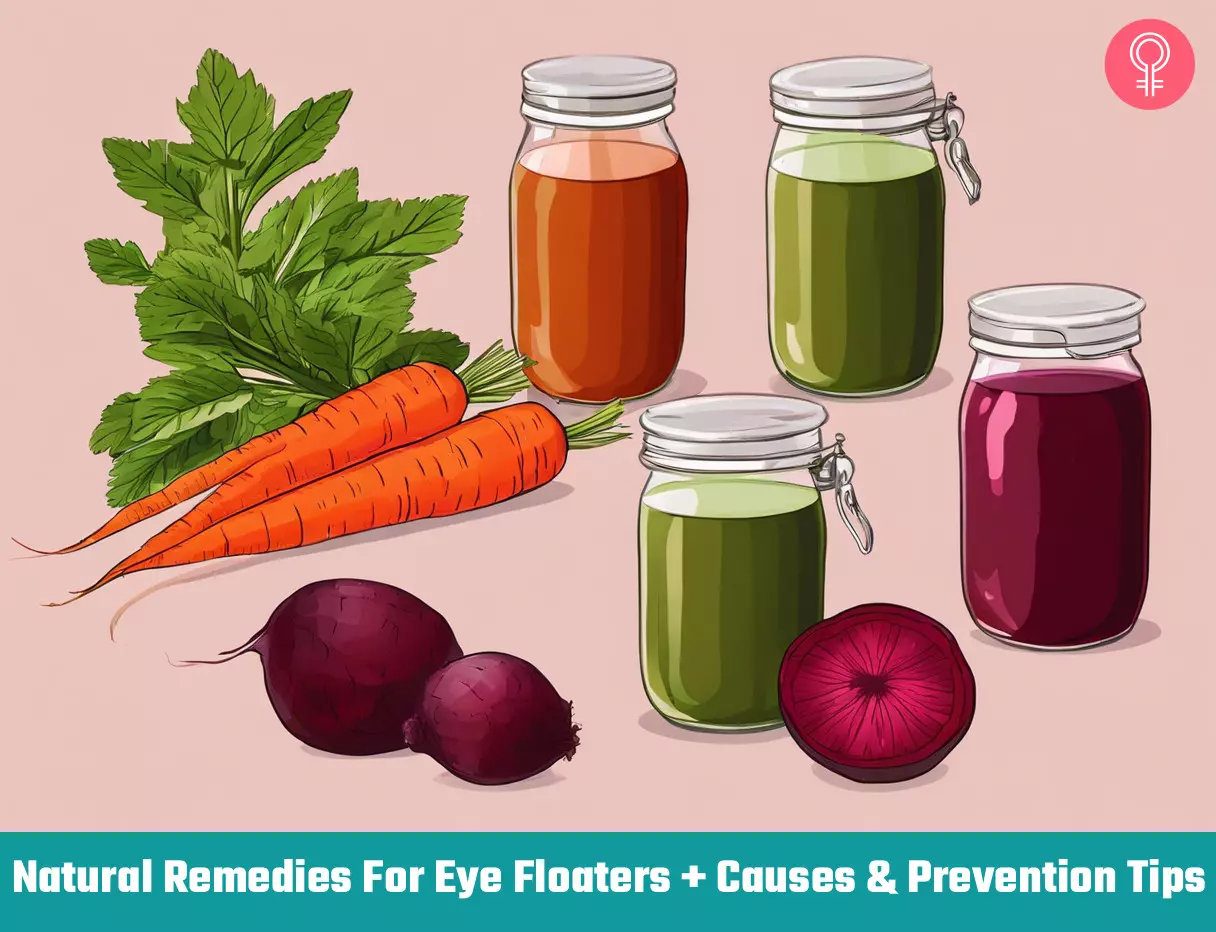
Image: Stable Diffusion/StyleCraze Design Team
Uncover the surprising benefit of pineapple in treating eye floaters. Watch the video below to learn how this tropical fruit can improve your vision and bring clarity back to your eyes.
Personal Experience: Source
StyleCraze's articles are interwoven with authentic personal narratives that provide depth and resonance to our content. Below are the sources of the personal accounts referenced in this article.
(i) PINEAPPLE EXPERIMENT RESULTS: Did bromelain dissolve my eye floaters?https://www.youtube.com/watch?v=J2Mz2gcWqYg
References
Articles on StyleCraze are backed by verified information from peer-reviewed and academic research papers, reputed organizations, research institutions, and medical associations to ensure accuracy and relevance. Read our editorial policy to learn more.
- Clifford, Tom et al. “The potential benefits of red beetroot supplementation in health and disease.” Nutrients vol. 7,4 2801-22.
https://www.ncbi.nlm.nih.gov/pmc/articles/PMC4425174/ - Scripsema, Nicole K et al. “Lutein, Zeaxanthin, and meso-Zeaxanthin in the Clinical Management of Eye Disease.” Journal of ophthalmology vol. 2015 (2015): 865179.
https://www.ncbi.nlm.nih.gov/pmc/articles/PMC4706936/ - Gilbert, Clare. “The eye signs of vitamin A deficiency.” Community eye health vol. 26,84 (2013): 66-7.
https://www.ncbi.nlm.nih.gov/pmc/articles/PMC3936686/ - Boyera, N et al. “Effect of vitamin C and its derivatives on collagen synthesis and cross-linking by normal human fibroblasts.” International journal of cosmetic science vol. 20,3 (1998): 151-8.
https://pubmed.ncbi.nlm.nih.gov/18505499/ - Vieira, C et al. “Effect of ricinoleic acid in acute and subchronic experimental models of inflammation.” Mediators of inflammation vol. 9,5 (2000): 223-8.
https://www.ncbi.nlm.nih.gov/pmc/articles/PMC1781768/ - Al-Yasiry, Ali Ridha Mustafa, and Bożena Kiczorowska. “Frankincense-therapeutic properties.” Advances in Hygiene & Experimental Medicine/Postepy Higieny i Medycyny Doswiadczalnej 70 (2016).
https://www.ncbi.nlm.nih.gov/pubmed/27117114 - Yang, Yaping et al. “Green tea catechins are potent anti-oxidants that ameliorate sodium iodate-induced retinal degeneration in rats.” Scientific reports vol. 6 29546.
https://www.ncbi.nlm.nih.gov/pmc/articles/PMC4935886/ - Wall, Rebecca, et al. “Fatty acids from fish: the anti-inflammatory potential of long-chain omega-3 fatty acids.” Nutrition reviews 68.5 (2010): 280-289.
https://academic.oup.com/nutritionreviews/article/68/5/280/1829259 - Cakiner-Egilmez, Tulay. “Omega 3 fatty acids and the eye.” Insight (American Society of Ophthalmic Registered Nurses) vol. 33,4 (2008): 20-5; quiz 26-7.
https://pubmed.ncbi.nlm.nih.gov/19227095/ - Martí, Nuria, et al. “Vitamin C and the role of citrus juices as functional food.” Natural product communications 4.5 (2009): 1934578X0900400506.
https://www.ncbi.nlm.nih.gov/pubmed/19445318 - Gopal, Judy, et al. “Authenticating apple cider vinegar’s home remedy claims: antibacterial, antifungal, antiviral properties and cytotoxicity aspect.” Natural product research 33.6 (2019): 906-910.
https://www.tandfonline.com/doi/full/10.1080/14786419.2017.1413567 - Yeap, Swee Keong et al. “Antistress and antioxidant effects of virgin coconut oil in vivo.” Experimental and therapeutic medicine vol. 9,1 (2015): 39-42. d
https://www.ncbi.nlm.nih.gov/pmc/articles/PMC4247320/ - da Silva Dias, João Carlos. “Nutritional and health benefits of carrots and their seed extracts.” Food and Nutrition Sciences 5.22 (2014): 2147.
https://www.scirp.org/html/5-2701422_52066.htm - Goyal, Ankit et al. “Flax and flaxseed oil: an ancient medicine & modern functional food.” Journal of food science and technology vol. 51,9 (2014): 1633-53.
https://www.ncbi.nlm.nih.gov/pmc/articles/PMC4152533/ - Bucheli, Peter et al. “Goji berry effects on macular characteristics and plasma antioxidant levels.” Optometry and vision science : official publication of the American Academy of Optometry vol. 88,2 (2011): 257-62.
https://pubmed.ncbi.nlm.nih.gov/21169874/ - Sun, Yan et al. “Grape seed proanthocyanidin extract protects the retina against early diabetic injury by activating the Nrf2 pathway.” Experimental and therapeutic medicine vol. 11,4 (2016): 1253-1258.
https://www.ncbi.nlm.nih.gov/pmc/articles/PMC4812468/ - Mikaili, Peyman et al. “Therapeutic uses and pharmacological properties of garlic, shallot, and their biologically active compounds.” Iranian journal of basic medical sciences vol. 16,10 (2013): 1031-48.
https://www.ncbi.nlm.nih.gov/pmc/articles/PMC3874089/ - Masuda, Yuki et al. “Antioxidant properties of gingerol related compounds from ginger.” BioFactors (Oxford, England) vol. 21,1-4 (2004): 293-6.
https://pubmed.ncbi.nlm.nih.gov/15630214/ - Nashine, Sonali et al. “Nutraceutical effects of Emblicaofficinalis in age-related macular degeneration.” Aging vol. 11,4 (2019): 1177-1188.
https://www.ncbi.nlm.nih.gov/pmc/articles/PMC6402529/ - Radha, Maharjan H., and Nampoothiri P. Laxmipriya. “Evaluation of biological properties and clinical effectiveness of Aloe vera: A systematic review.” Journal of traditional and complementary medicine 5.1 (2015): 21-26.
https://www.sciencedirect.com/science/article/pii/S2225411014000078 - Woźniak, Anna, and Roman Paduch. “Aloe vera extract activity on human corneal cells.” Pharmaceutical biology vol. 50,2 (2012): 147-54.
https://pubmed.ncbi.nlm.nih.gov/22338121/ - Hollman, Peter CH, et al. “Bioavailability of the dietary antioxidant flavonol quercetin in man.” Cancer letters 114.1-2 (1997): 139-140.
https://www.ncbi.nlm.nih.gov/pubmed/9103273 - McKay, Tina B., and Dimitrios Karamichos. “Quercetin and the ocular surface: What we know and where we are going.” Experimental Biology and Medicine 242.6 (2017): 565-572.
https://journals.sagepub.com/doi/abs/10.1177/1535370216685187 - Thring, Tamsyn Sa et al. “Antioxidant and potential anti-inflammatory activity of extracts and formulations of white tea, rose, and witch hazel on primary human dermal fibroblast cells.” Journal of inflammation (London, England) vol. 8,1 27.
https://www.ncbi.nlm.nih.gov/pmc/articles/PMC3214789/ - Pharmacologic vitreolysis of vitreous floaters by 3-month pineapple supplement in Taiwan: A pilot studyhttps://www.semanticscholar.org/paper/Pharmacologic-vitreolysis-of-vitreous-floaters-by-%3A-Horng-Chen/4a0f25b2207e06aa36c7e59a9127902b771f2f52
Read full bio of M. Narendran Muthukrishnan
Read full bio of Ravi Teja Tadimalla
Read full bio of Dipti Sharma





